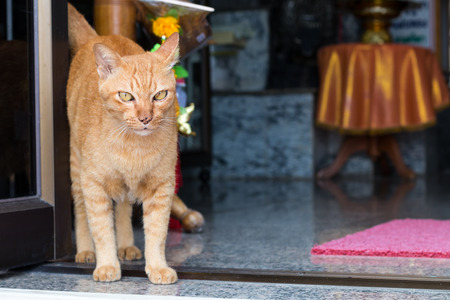Background: The Right to Keep Pets in Indian Societies
Pet ownership has long been woven into the cultural fabric of India, where animals like dogs, cats, and birds hold a special place in many households. With India’s growing urbanization, more families are moving into apartments and gated societies, making the question of keeping pets in shared residential spaces increasingly relevant. In Indian culture, pets are often seen as members of the family, offering companionship, emotional support, and even contributing to better mental health. According to recent surveys, millions of Indian households now include at least one pet, reflecting both changing lifestyles and a deeper appreciation for animal welfare.
However, living with pets in apartment complexes or cooperative housing societies is not always straightforward. Many Residents’ Welfare Associations (RWAs) and housing society committees have created strict by-laws that either restrict or outright ban pet ownership within their premises. Common challenges faced by pet owners include complaints about noise, hygiene concerns, fear of bites or allergies among residents, and disputes over the use of common areas. These issues often lead to friction between pet owners and non-pet owners, resulting in a number of legal conflicts and court cases across the country.
This backdrop sets the stage for landmark court rulings that have sought to clarify the rights of pet owners under Indian law. Understanding these legal milestones is crucial not only for current and prospective pet parents but also for RWAs and society managers striving to balance individual rights with community well-being.
2. Key Facts of the Court Case
The landmark case regarding the rights to keep pets in Indian apartments was brought before the Delhi High Court in response to increasing disputes between Residents Welfare Associations (RWAs) and pet owners. This court case has become a significant reference point for similar issues across India, shaping the legal landscape for animal lovers and apartment dwellers alike.
Background of the Case
In recent years, several RWAs in metropolitan cities like Delhi, Mumbai, and Bengaluru implemented bylaws or rules prohibiting residents from keeping pets within their flats or on shared premises. The rationale provided by these associations included concerns over hygiene, noise complaints, safety issues, and communal harmony. However, pet owners felt these restrictions were arbitrary and infringed upon their fundamental rights as citizens.
Involved Parties
| Party | Role/Description |
|---|---|
| Pet Owners | Residents challenging RWA rules, seeking protection of their right to keep pets |
| Residents’ Welfare Association (RWA) | Enforcement body attempting to restrict or ban pets through society bylaws |
| Court (Delhi High Court) | Adjudicating authority hearing arguments from both sides |
| AnimaI Welfare Board of India (AWBI) | Intervening party advocating for animal rights and humane treatment under Indian law |
Primary Complaints and Legal Arguments
- Pet Owners’ Complaints: Argued that blanket bans on pets violate their right to life and personal liberty under Article 21 of the Indian Constitution. They also cited guidelines issued by the Animal Welfare Board of India protecting pet ownership in housing societies.
- RWA’s Standpoint: Claimed that pets caused health risks, nuisance due to barking or fouling in common areas, and posed threats to children or elderly residents. RWAs relied on majority votes in society meetings to enforce such restrictions.
- Court’s Examination: Focused on balancing individual rights with community welfare. The court considered relevant provisions under the Prevention of Cruelty to Animals Act, 1960, as well as constitutional mandates related to privacy and property rights.
- AWBI’s Submission: Highlighted national guidelines allowing pet ownership, stressing that no RWA can legally enforce a complete ban on pets in residential complexes. Advocated humane coexistence practices such as use of leashes and cleaning after pets.
Legal Context and Precedents
The court referenced previous judgments upholding animal welfare as part of fundamental duties (Article 51A(g)), while reiterating that RWAs cannot override statutory protections for animals or infringe upon constitutional liberties. This case thus set the stage for a balanced approach tailored to Indian societal norms and legal frameworks.

3. Courts Ruling and Its Rationale
The Indian court’s landmark decision in the case concerning the right to keep pets in residential apartments set a significant legal precedent, especially for pet owners and housing societies across the country. The court examined the existing by-laws of Resident Welfare Associations (RWAs) and housing societies, many of which had blanket restrictions or outright bans on keeping pets. In its ruling, the court clarified that such prohibitions are not only arbitrary but also contrary to fundamental rights granted by the Indian Constitution.
Central to the court’s reasoning was the interpretation of Article 21, which guarantees the right to life and personal liberty. The court noted that this right extends to living with dignity, which includes companionship with pets for many families. It highlighted that no RWA or apartment association has legal authority to frame rules that are inconsistent with higher laws or constitutional protections. The court emphasized that guidelines issued by the Animal Welfare Board of India (AWBI) must be respected, stating clearly that residents cannot be prevented from keeping pets unless there is a specific and reasonable ground such as proven nuisance or threat to public safety.
The court also addressed common complaints about noise or hygiene associated with pets. It ruled that while RWAs can request responsible pet ownership—such as proper vaccination, leash etiquette, and cleaning up after pets—they cannot enforce discriminatory rules like banning lifts for pets or imposing excessive fines. The judgement reinforced that animals are protected under Section 11 of the Prevention of Cruelty to Animals Act, 1960, making it unlawful for societies to act against pet welfare without just cause.
This ruling was celebrated as a progressive step in urban India, where rapid apartment living sometimes leads to friction between pet owners and non-pet owners. By balancing individual freedoms with community responsibilities, the judgment ensured that both human and animal rights receive due recognition within Indian law.
Impact on Apartment Owners and Welfare Associations
The landmark court ruling regarding pet ownership in Indian apartments has brought significant changes for Residents’ Welfare Associations (RWAs), apartment management committees, and individual pet owners. This decision emphasizes the need to balance community welfare with individual rights, especially in densely populated urban settings like Mumbai, Delhi, and Bangalore.
How RWAs and Management Committees Are Affected
RWAs are now legally required to respect the rights of residents who wish to keep pets. They cannot arbitrarily ban pets or enforce harsh rules that undermine pet ownership. The ruling also clarifies that housing societies cannot levy excessive fines or demand ‘No Objection Certificates’ from other residents for keeping a pet. Instead, they are encouraged to create reasonable guidelines addressing public hygiene and animal welfare without violating fundamental rights.
| Aspect | Before Ruling | After Ruling |
|---|---|---|
| Pet Bans | Common in many societies | No outright bans allowed |
| Fines/Charges | Imposed arbitrarily by RWAs | Must be reasonable and justified |
| Resident Consent Needed | Often required NOC from neighbors | No consent needed; legal right protected |
| Guidelines on Pet Care | Largely unregulated or overly strict | Must align with animal welfare standards |
Rights of Pet Owners Strengthened Nationwide
This judgment is a relief for pet lovers across India. It affirms their right to companionship and emotional support animals, ensuring that no one can be forced to part with their pets due to arbitrary society regulations. It also empowers them to challenge any discriminatory practices through local authorities or the courts if necessary.
Promoting Harmony Between Residents and Pet Owners
The court ruling encourages dialogue between pet owners and non-pet-owning residents, promoting coexistence and understanding. RWAs are advised to conduct awareness sessions about responsible pet ownership, vaccination, leash laws, and waste disposal. The aim is to address concerns such as noise, cleanliness, and safety while respecting the dignity of both humans and animals.
Key Takeaways for Apartment Communities:
- No blanket ban on pets by RWAs.
- Reasonable rules can be made but must not violate legal rights.
- Pet owners must ensure pets do not become a nuisance.
- Avenues for grievance redressal are strengthened for both sides.
This ruling sets a precedent for fair treatment of pet owners throughout Indian apartment complexes, striking a vital balance between community well-being and personal freedom.
5. Cultural and Social Reactions in India
Public Response to the Landmark Ruling
The landmark court ruling on keeping pets in Indian apartments has sparked significant public interest and dialogue across the country. Many pet lovers and animal welfare advocates have celebrated the decision, seeing it as a progressive step that acknowledges the emotional bond between families and their pets. Social media platforms such as Twitter, Facebook, and Instagram have witnessed widespread discussions, with hashtags like #PetFriendlyIndia and #RightToKeepPets trending shortly after the verdict.
Media Coverage: A Mixed Narrative
Indian media outlets have extensively covered the court case, providing balanced perspectives from various stakeholders. National newspapers such as The Times of India and Hindustan Times published editorials welcoming the judgment, emphasizing its importance for urban pet owners. At the same time, regional news channels highlighted concerns raised by certain resident welfare associations (RWAs) about hygiene, noise, and safety within apartment complexes. Television debates often featured legal experts, animal rights activists, and RWA representatives discussing both the potential benefits and challenges of implementing the ruling.
Supportive Voices: Advocating Compassion
Supporters argue that the ruling aligns with India’s growing awareness of animal rights and compassion towards animals. Organizations like People for Animals (PFA) and Blue Cross India have praised the court’s decision for upholding responsible pet ownership without infringing on individual freedoms. Many residents believe that pets contribute positively to mental health, especially during stressful times such as the COVID-19 pandemic, making this judgment socially relevant.
Concerns: Balancing Rights and Responsibilities
Despite widespread support, there are notable concerns among some apartment dwellers regarding sanitation issues, allergies, barking noise, and safety—especially for children or elderly residents. RWAs in metro cities like Mumbai, Bengaluru, and Delhi have called for clear guidelines to address these worries while respecting pet owners’ rights. There is also an ongoing conversation about educating pet owners on responsible care, leash laws, vaccination requirements, and waste management within shared living spaces.
Changing Social Attitudes in Urban India
This court ruling reflects changing social attitudes towards pets in urban India. Traditionally, pets—especially dogs—were more common in independent houses or rural areas. Now, with urbanisation and nuclear families on the rise, more Indians are choosing to share their apartments with cats, dogs, birds, or even rabbits. The judgment is seen as a recognition of this shift and a move towards a more inclusive society that values both human convenience and animal welfare.
6. Guidance for Indian Pet Owners and Societies
Practical Tips for Pet Owners
Following the landmark court ruling on keeping pets in Indian apartments, pet owners should adopt responsible practices to maintain harmony within their communities. Always ensure your pet’s vaccinations are up-to-date and maintain proper hygiene in common areas. Use a leash when walking your pet in shared spaces and clean up after them promptly. It is advisable to avoid letting your pet create excessive noise, especially during nighttime, to respect your neighbours peace.
Legal Considerations for Housing Societies
Housing societies must align their bye-laws with the court’s decision, recognising the rights of residents to keep pets. Societies cannot impose blanket bans on pets but can set reasonable guidelines for pet behaviour in common areas. They may designate specific pet relief zones and establish protocols for addressing grievances through dialogue rather than punitive measures. Regularly updating residents about these policies fosters transparency and mutual respect.
Encouraging Harmonious Co-Existence
Both pet owners and housing societies should work together to create an inclusive environment. Organising awareness drives about responsible pet parenting and health check-up camps can promote understanding among residents. Open communication channels, such as suggestion boxes or periodic meetings, allow issues to be resolved amicably. Ultimately, by respecting each other’s rights and duties as outlined by the court, both parties can ensure peaceful co-existence in apartment complexes across India.
7. Future Legal and Social Implications
The landmark court ruling on keeping pets in Indian apartments is expected to have significant long-term effects across legal and social spheres in India. Legally, this judgment may prompt Resident Welfare Associations (RWAs) and apartment societies to revisit and revise their bye-laws to align with the principles of animal welfare as well as residents’ rights. Over time, we may witness the establishment of clearer guidelines for pet ownership within housing societies, helping to minimize disputes and foster harmonious cohabitation.
Socially, this verdict signals a shift towards more compassionate community living, where pets are increasingly seen as family members rather than nuisances. The judgment could inspire greater public awareness about responsible pet ownership and animal welfare, encouraging communities to adopt pet-friendly policies while still addressing concerns related to hygiene and safety. Furthermore, as urban India continues to evolve, attitudes towards animals—especially dogs and cats—are likely to become more progressive, reflecting global trends in animal rights.
This ruling also highlights the importance of striking a balance between individual freedoms and collective well-being within densely populated apartment complexes. It sets a precedent that respects both the rights of pet owners and the comfort of non-pet-owning residents, paving the way for inclusive dialogue and mutual understanding. In the long run, such changes could contribute to building stronger, more empathetic neighborhoods that value diversity—including our four-legged companions.

